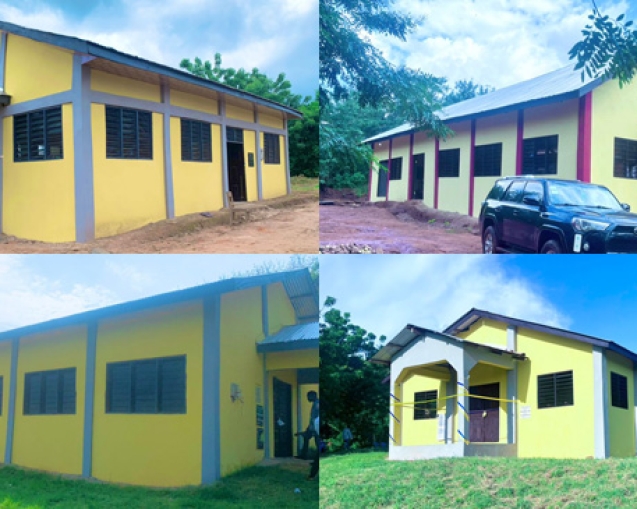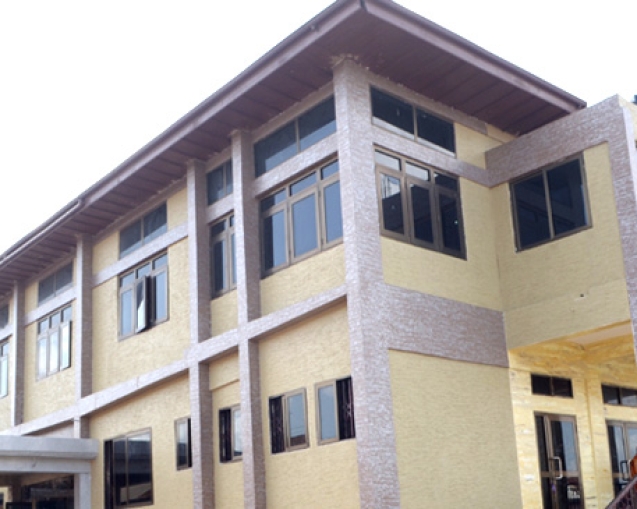By Prince Kojo Asare (prince.asare@thecophq.org)
Whether it is the golden sparkle of the Sahara Desert sand, the lush beauty of the Congo Rainforest or the stunning desert islands of Mozambique, AFRICA is a treasure trove of exotic locations just begging to be explored.
From the northernmost city of Ras ben Sakka in Tunisia to the southernmost town of Cape Agulhas in South Africa, the continent of AFRICA is known for her breathtaking landscapes and is touted as the home of natural panorama.
The second-largest continent also boasts one of the world’s largest rainforests, limitless natural resources, the most diverse ecosystem, and megafauna (such as giraffes, zebras, hippos, gorillas, and wildebeest) found nowhere else in the world.
Ironically, despite her great fortunes, AFRICA is widely regarded as the poorest; most undeveloped; and the most plagued by famine, diseases and civil wars compared to the six other continents of the world – Asia, North America, South America, Antarctica, Europe and Australia/Oceania.
Over the years, the constant portrayal of AFRICA as a “dark continent,” especially by western media, has fueled the belief that the continent may be under a “spiritual curse.”
So prevalent was this notion in the 20th century that in 1997, Dr. Tokunboh Adeyemo, a renowned Evangelical leader, wrote a book titled: “Is Africa Cursed? A Vision for the Radical Transformation of An Ailing Continent,” to rebut this claim and insist that AFRICA is blessed.
For a continent possessing colossal quantities of gold, silver, copper, diamonds, oil, natural gas, rubber, coal, bauxite, tin, graphite, uranium 235, and even fertile soil, it begs the question whether AFRICA is indeed “cursed” or just being misrepresented.
How could a continent blessed with around 25% of the entire bird species of the world, 1,100 different species of mammals, and four of the five fastest land animals (the cheetah, the wildebeest, the lion, and the Thomson’s gazelle), be considered cursed?
Would she have been called the “poorest and most undeveloped continent” had her inhabitants taken advantage of her large land area (30.3 million km2) and the vast mineral resources she possesses to alleviate abject poverty on the continent?
Would AFRICA be branded a “dark continent” had her inhabitants fully explored the 10,000 plant species in her tropical rainforests through scientific (medicinal) research to fight diseases on the continent?
Would she be tagged as a “cursed continent” had her inhabitants capitalised on her 874 million hectares of arable land and favourable weather conditions for massive agricultural production to eradicate food insecurity on the continent?
Again, what perception would the western world have had of AFRICA had her inhabitants sought her interest and not exploited her in every way possible to satisfy their greed and pursue a life of opulence?
How different would the story of AFRICA have been had her inhabitants not just looked on for many years but made conscious efforts to correct the narrative of AFRICA being “the worst place on earth?”
After careful and sober reflection on these questions, I concluded that the continent of AFRICA has never been the problem; we are! – the 1.3 billion Africans inhabiting this continent. We failed our continent by not protecting, preserving and promoting a good image of her – the African brand.
Instead of projecting the African brand, we stood aloof and looked on as the name of the continent was constantly dragged through the mud. Unfortunately, with time, some Africans have come to accept the distorted image of AFRICA as the reality and even join non-Africans to pronounce doom over the continent.
Dr. Adeyemo expressed similar sentiments in his book when he said, “the image that non-Africans seem to have about AFRICA and Africans is negative, and sometimes the image we [Africans] also have about ourselves—including Christians—is equally negative.”
Based on the above premise, I can deductively argue that the six other continents have a better image than AFRICA, not because they have more minerals or a larger land area. It is, rather, because their inhabitants have succeeded in protecting, preserving and promoting a good image of their respective continents.
The continent of Europe, for instance, has earned the reputation of being the most developed and prosperous continent because her inhabitants explored and maximised her resources. Also, by harnessing the power of the media, Europeans have succeeded in controlling the narrative of how Europe is perceived by the outside world. This, they have achieved, by constantly painting a positive image of life on the continent. In so doing, they have not only made their continent more prosperous but also attractive for inhabitants of other continents to desire to live in it.
Hence, to restore the tainted image of AFRICA, we must begin to consciously tell the African story and not let others do that for us. For so long, the western media has portrayed AFRICA as the “factory of diseases, poverty and famine.” But such problems are not exclusive to AFRICA; other continents face similar challenges.
We have a duty to speak up and refute the “offensive labels” placed on the continent, bearing in mind that untruths left uncorrected or unchallenged become truth.
We must, therefore, resolve to represent AFRICA better. We must always uphold her values of love, hard work, ingenuity, hospitality, integrity, sincerity, humility and respect for others.
We must never lose sight of the fact that, as Africans, we are ambassadors of the world’s most blessed continent, and our actions and inactions in every facet of life directly affect how she is perceived.
Let us all commit to rebuilding the distorted image of AFRICA because it is only in her prosperity that we shall also prosper.
Long live the beautiful continent of AFRICA!
Long live GHANA!


















